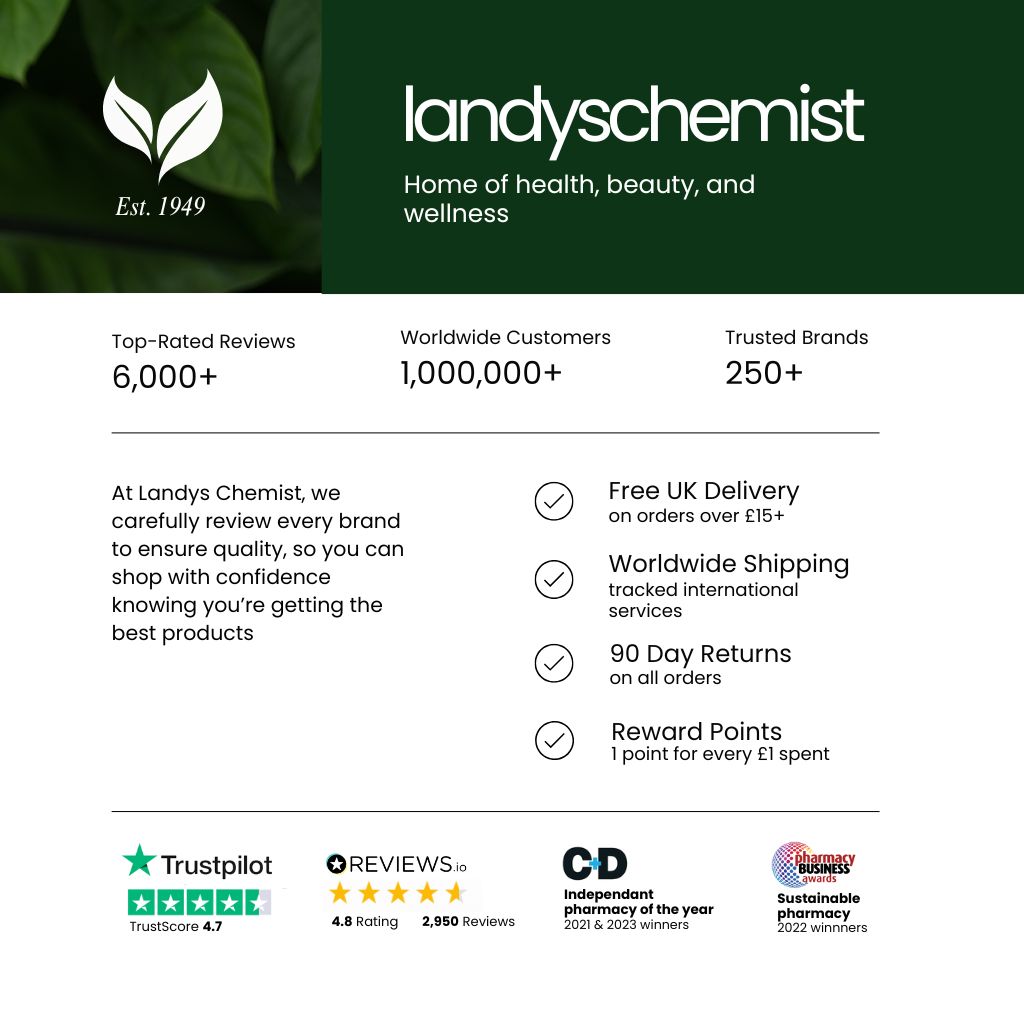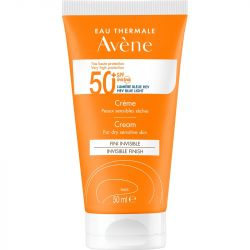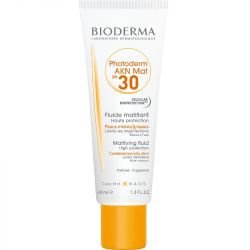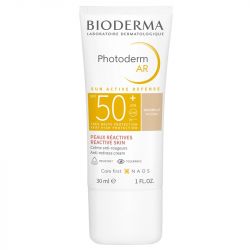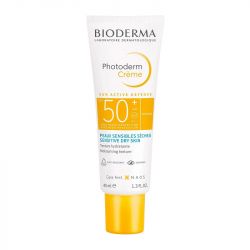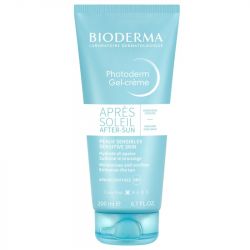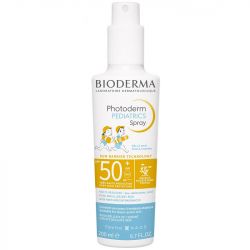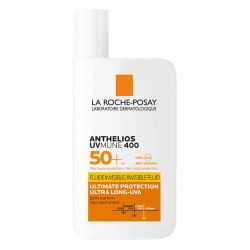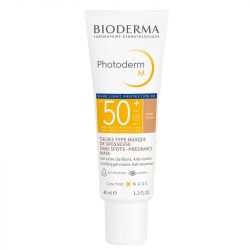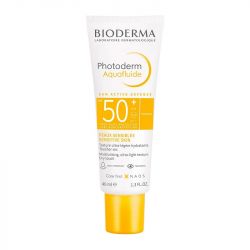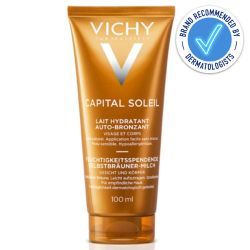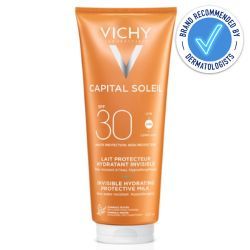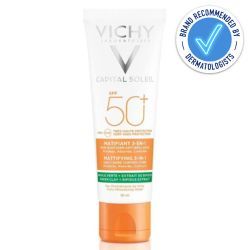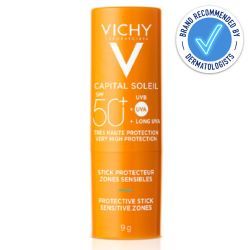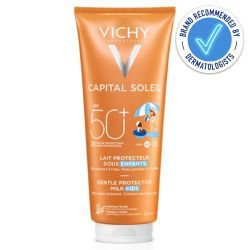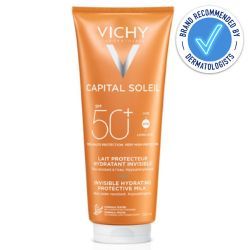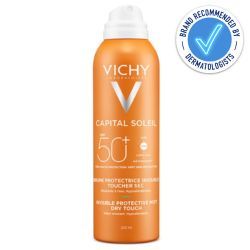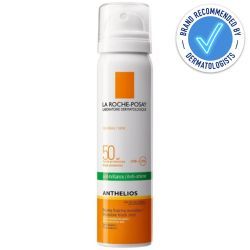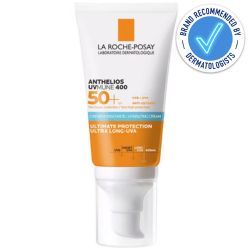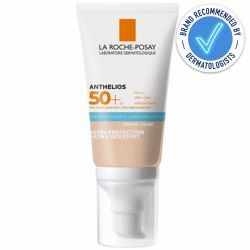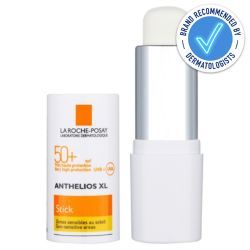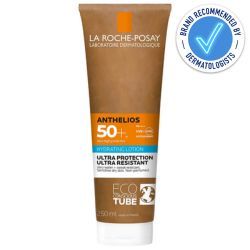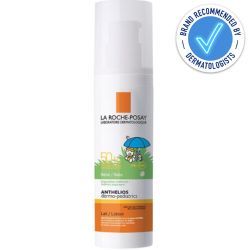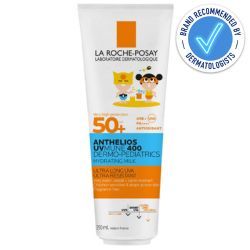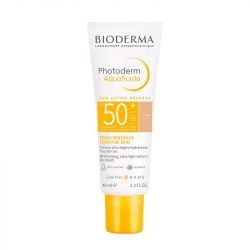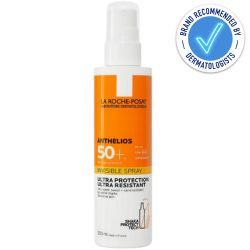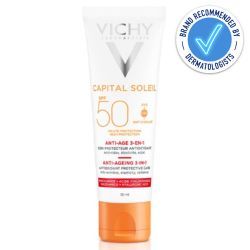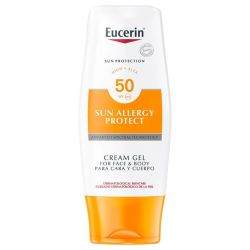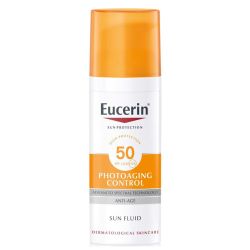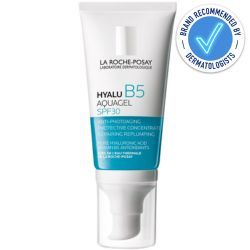Dermatological Sun Protection
It is important to wear a high SPF when going out into the sun. Whether you have fair and delicate skin that needs extra protection, you have children or just want to be more careful in the sun, our range of expert sun protection will help to protect you from harmful UV rays, so you can enjoy the sun safely.
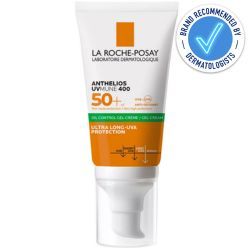 La Roche-Posay Anthelios UVMune SPF50+ Oil Control Gel-Cream 50mlSpecial Price £16.50 Regular Price £22.00
La Roche-Posay Anthelios UVMune SPF50+ Oil Control Gel-Cream 50mlSpecial Price £16.50 Regular Price £22.00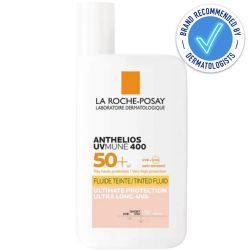 La Roche-Posay Anthelios UVMune 400 Tinted Fluid SPF50 50mlSpecial Price £15.75 Regular Price £21.00
La Roche-Posay Anthelios UVMune 400 Tinted Fluid SPF50 50mlSpecial Price £15.75 Regular Price £21.00- La Roche-Posay Anthelios UVMune 400 Invisible Sun Fluid SPF50 50mlSpecial Price £15.00 Regular Price £20.00
- Vichy Capital Soleil Hydra-Bronzing Self-Tanning Milk Face and Body 100mlSpecial Price £12.38 Regular Price £16.50
- Vichy Capital Soleil Children's Face and Body Gentle Milk SPF 50+ 300mlSpecial Price £16.13 Regular Price £21.50
- Vichy Capital Soleil Hydrating Sun Protection Mist SPF50 200mlSpecial Price £16.13 Regular Price £21.50
- La Roche-Posay Anthelios UVMune 400 Hydrating Cream SPF50 50mlSpecial Price £16.50 Regular Price £22.00
- La Roche-Posay Anthelios Tinted Hydrating Cream SPF50+ 50mlSpecial Price £16.50 Regular Price £22.00
- La Roche-Posay Anthelios Dermo-Pediatrics Baby Lotion SPF50+ 50mlSpecial Price £12.00 Regular Price £16.00
- La Roche-Posay Anthelios UVMUNE 400 Dermo-Pediatrics Hydrating Lotion SPF50+ 250mlSpecial Price £19.88 Regular Price £26.50
- Bioderma Photoderm Tinted Aquafluid SPF50+ Light Colour 40mlSpecial Price £14.40 Regular Price £18.00
All you need to know about Sun Protection
What is SPF?
SPF is short for sun protection factor, and is an indication of how much protection is in a sun lotion. For instance, if you wear a sunscreen with SPF, this gives you 30x more protection than if you wore no protection at all.
What is the difference between UVA and UVB?
UVA and UVB rays are both ultraviolet rays, but react in different ways when they come into contact with the skin. UVB rays give you sunburn, and are responsible for the redness, soreness and irritation that comes with getting caught in the sun. These types of rays only hurt the outermost layer of the skin. UVA rays go deeper into the skin and are responsible for skin ageing and skin cancer. This is why it is important to protect yourself from both types of UV rays.
Does sunscreen prevent you from getting tanned?
No sunscreen is completely 100% effective at stopping UVA and UVB rays from getting to your skin, so you will always tan when you go into the sun, or burn, depending on how your skin reacts. Whenever we expose our skin to the sun, after five minutes, melanin activation occurs, which determines the colour of our skin and how we tan.
How much and how often should I apply sunscreen?
You should apply around 6 teaspoons of sunscreen to your whole body, using a ratio of around 2mg per cm2. You should reapply this every two hours, especially if you are spending a large amount of time in the sun. If you are spending time in the sun during 12pm-2pm, you should apply sunscreen even more liberally to protect it from harsh rays.

